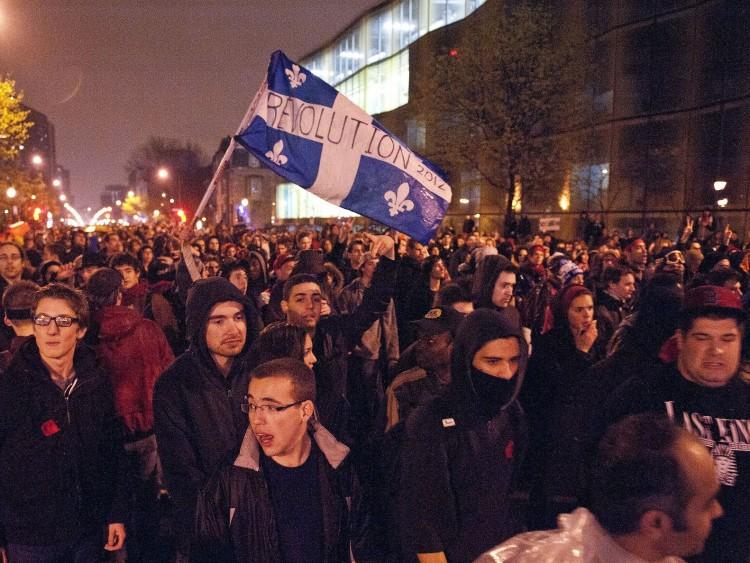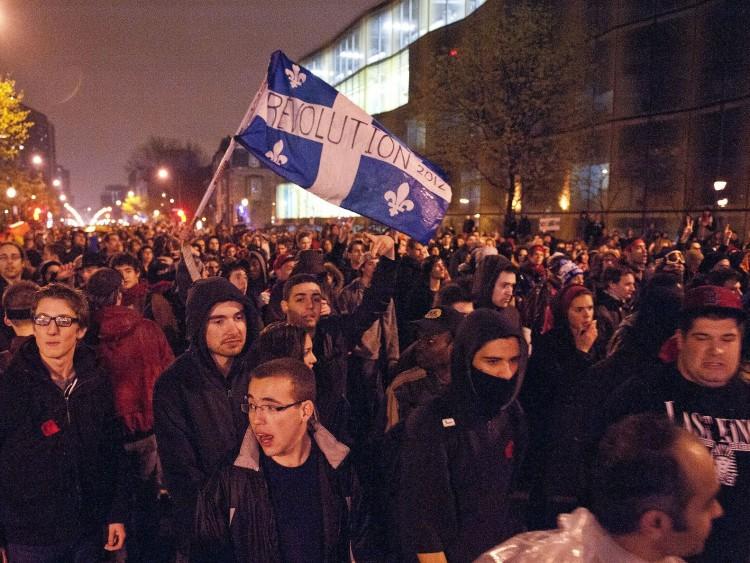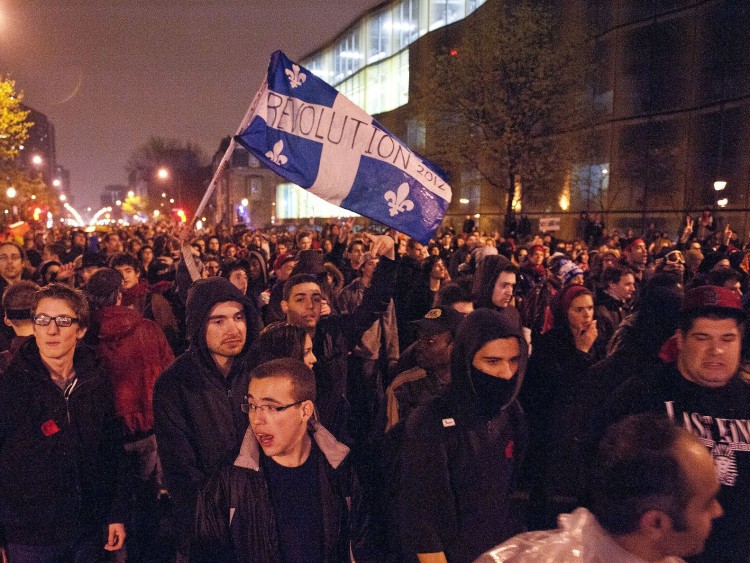As Quebec student protestors mark their third straight month of taking a stand against proposed tuition hikes, the Canadian Federation of Students is warning that student debt across Canada is reaching “dangerous levels.”
This year, national student debt will reach $15 billion. However, this figure only accounts for loans doled out by the federal government. If provincial and private lenders are included, the actual student debt is billions more.
“In Canada we’re reaching pretty dangerous levels of student debt. It’s a huge burden to put on the youth of today,” says Roxanne Dubois, chair of the CFS, which represents half a million students. In addition, young people are facing an unemployment rate that’s double the rate of the overall population, she says.






